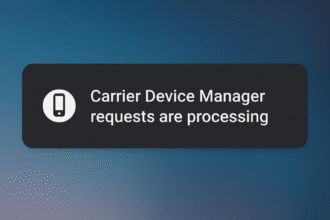Project management is the process of planning, executing, and controlling a specific task or set of tasks to achieve particular goals within a given timeframe and budget. It involves managing resources, scope, risks, and quality to ensure successful project delivery. In simple terms, project management is all about getting work done efficiently —on time, within budget, and according to specified quality standards.
Why Project Management is Important
● Ensures clear planning and execution
● Helps manage time, cost, and quality
● Reduces risks and delays
● Improves team collaboration
● Delivers higher customer satisfaction
Without project management, businesses can face miscommunication, missed deadlines, and cost overruns.
Key Elements of Project Management
1. Scope – What work needs to be done?
2. Time – How long will it take?
3. Cost – What is the budget?
4. Quality – Are the standards being met?
5. Resources – Who and what is needed?
6. Communication – How will updates be shared?
7. Risk – What can go wrong, and how to manage it?
These are often referred to as the Project Management Triangle or Triple Constraint.
Phases of Project Management
Management is typically broken into five main phases:
1. Initiatin
Defin the project, its goals, feasibility, and stakeholders.
2. Planning
Create a roadmap, allocate resources, set deadlines, and identify risks
3. Execution
Carry out the project according to the plan, coordinate teams, and communicate
progress.
4. Monitoring and Controlling
Track performance, manage changes, and ensure project stays on track.
5. cosin
Finalize all tasks, deliver results, review performance, and close contracts.
Popular Project Management Methodologies
There are several frameworks used in project management, depending on the type and scale of the project:
● Waterfall – Linear and sequential
● Agile – Iterative and flexible
● Scrum – Agile framework focused on short “sprints”
● Kanban – Visual system to track workflow
● PRINCE2 – Process-driven approach widely used in the UK
● Lean – Focuses on minimizing waste
Choosing the right methodology can greatly improve project success.
Tools Used in Project Processing
Modern project managers use various software tools to manage tasks, teams, and timelines. Common tools include:
● Trello
● Asana
● ClickUp
● Jira
● Microsoft Projet
Project Manager Roles and Responsibilities
A project manager is the person responsible for leading the project to success.
Their duties include:
● Defining project scope
● Planning timelines and budgets
● Managing teams and stakeholders
● Mitigating risks
● Monitoring progress
● Ensuring timely delivery
Benefits of Effective Project Management
● Faster delivery of results
● Better resource utilization
● Higher quality outcomes
● Greater team productivity
● Increased client satisfaction
● Stronger risk management
Effective project planning is crucial for companies aiming to scale, grow,and stay competitive
FAQs
1. What qualifications do I need to become a project manager?
You can start with a bachelor’s degree and gain certifications like PMP (Project Management Professional) or Certified ScrumMaster (CSM).
2. Can project management be done remotely?
Yes! With online tools and clear communication, remote project management is very effective.
3. What industries need project managers?
Almost ll — IT, construction, healthcare, marketing, education, and even non-profits.
Final Thoughts
Planning is not just about organizing tasks — it’s about delivering real value through structured planning, execution, and communication. Whether you’re working on a small assignment or a multi-million-dollar campaign,understanding the basics of project management is essential for success.





